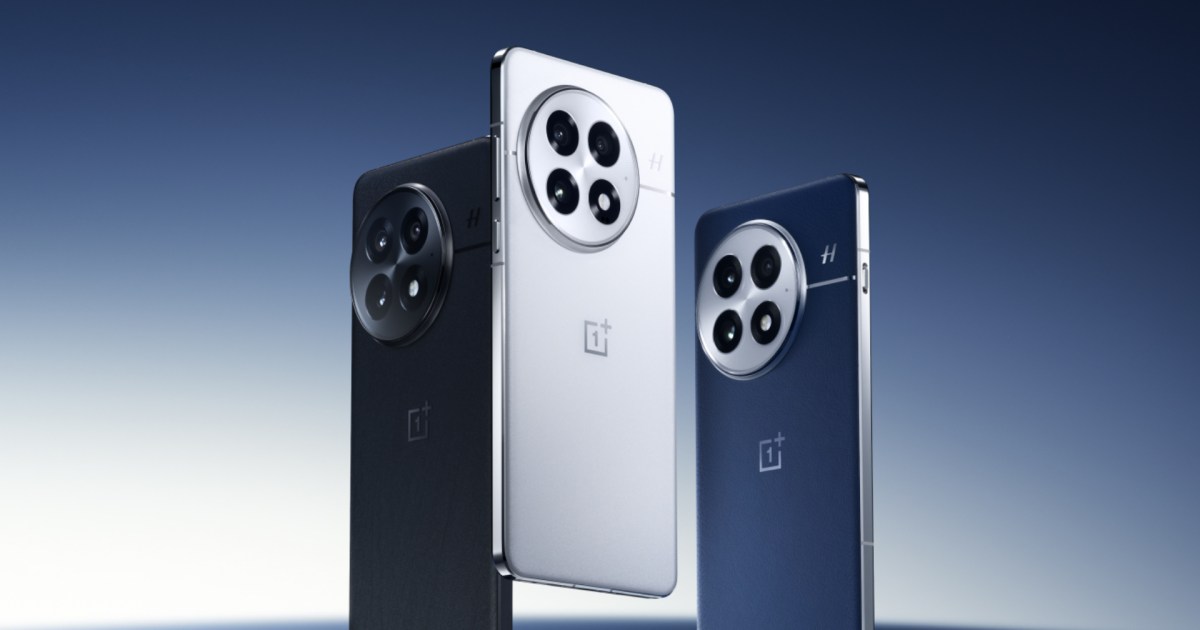OnePlus is an excellent brand that offers powerful flagship phones at a great value compared to some of its competitors. We followed every rumor about the OnePlus 13 for months, but now it’s here — and it’s everything we hoped for. It might not be available in the Western market yet, but it will be soon.
So, what makes the OnePlus 13 so special? Here’s everything you need to know about OnePlus’ latest flagship.
When is the OnePlus 13 being released?
The OnePlus 13 has already been released in China, but it could be several months before it reaches the rest of the globe. OnePlus is a Chinese company, so it comes as no surprise that the OnePlus 13 would release there first. This has been the typical schedule for OnePlus for the past three releases. For context:
- OnePlus 10 Pro: January 11, 2022 (China release) / March 31, 2022 (global release)
- OnePlus 11: January 9, 2023 (China release) / February 7, 2023 (global release)
- OnePlus 12: December 5, 2023 (China release) / January 23, 2024 (global release)
As you can see, China always gets OnePlus releases first. And if you look at those dates, OnePlus has been releasing its flagship phone earlier each year. This year, OnePlus continued that pattern with the Chinese release of the OnePlus 13 on October 31.
The time between the Chinese release and the global launch has dropped steadily over the past three devices, and rumors point to late 2024 or early 2025 for the OnePlus 13’s global release. One user on Reddit said they’d been informed that the OnePlus 13 would be available in Singapore from January forward.
Though we don’t have a specific release window for the rest of the world, based on past trends, the OnePlus 13 could be released outside of China as early as November 2024, or there’s a chance we may have to wait until January 2025. For now, we’ll have to wait and see.
How much does the OnePlus 13 cost?

The OnePlus 13 starts at CNY 4,799, which is roughly $675, give or take a few dollars. The OnePlus 12 launched at CNY 4,299, so we’re already seeing a 500 CNY increase in price this generation — but that doesn’t necessarily mean the cost will translate to the global market.
Regarding flagship phones, OnePlus has always offered one of the better values on the market. Just look at its last two releases. The OnePlus 11 launched at $700, and the OnePlus 12 was $800.
That’s a steady price increase over the past two generations, and the increased launch price in China could spell bad news for affordability on a global scale. This is backed by a recent report about the OnePlus 13’s price.
If that price increase is true, the OnePlus 13 may start at $900 in the U.S. Still, with most “pro”-level flagships from competitors starting at $1,000 or more, the OnePlus 13 may still undercut them by a tiny bit — especially when it comes to flagships like the Galaxy S25. However, that price gap seems to be getting smaller each year.
OnePlus 13 specs
| Dimensions | 162.9 x 76.5 x 8.5 mm |
| Weight | 210 or 213 g (7.41 oz) |
| Display | 6.82 inch AMOLED display, 2550 x 3168 pixels, 120Hz refresh rate, 4,500 nits peak |
| Durability | Crystal Shield super-ceramic glass |
| Processor | Qualcomm Snapdragon 8 Elite |
| RAM | Up to 24GB |
| Storage | Up to 1TB |
| Selfie Camera | 32MP, f/2.4 |
| Main Camera | 50 MP, f/1.6 wide 50 MP, f/2.6 telephoto 50 MP, f/2.0 ultrawide |
| Battery | 6,000mAh |
OnePlus might not be as well-known as Apple or Samsung, but the company cranks out some truly killer phones. The 1TB storage/24GB RAM configuration far outpaces even my laptop in terms of power, and the triple camera setup on the rear provides ridiculous photographic potential. A word of warning, though: a few rumors have said the top-end config might be a Chinese-only option.
The battery is also worth noting. At 6,000mAh, this thing has quite a bit of capacity. It also supports 100W charging, 50W wireless charging, and can quick charge up to 100% in just 36 minutes.
The camera setup looks astounding, but you might notice the telephoto lens is a lower megapixel count than the OnePlus 12. Don’t worry — with its upgraded sensor, overall image quality should be superior.
Note that these specs might change for the global version of the phone.
OnePlus 13 design and colors

There was much speculation about the OnePlus 13 before its launch, but now we know exactly what it looks like.
The phone is available in black, blue, and white, although the names are a bit more out of pocket than that. Black is called Obsidian Secret Realm, blue is called Blues Hour, and white is called White Dew Dawn. Each of the colors has its own texture, too.
Obsidian Secret Realm has an ebony wood grain on the glass that gives it not only a textured feel but also quite an aesthetic look. Blues Hour is leather, and White Dew Dawn has a smooth glass backing.
The design of the camera housing has also changed. OnePlus has used the same toilet-like module (a circle within half a pill shape) since the OnePlus 11, but OnePlus is getting rid of the excess half-pill housing and just going with the circle that houses the three cameras and LED flash. A thin metal band also goes from the center-right of the camera module and extends into the frame. There is also an “H” above the line for the Hasselblad camera tuning partnership.
It’s reminiscent of what you have on the OnePlus Open but in a square formation rather than a diamond with one side missing. This is a small and subtle change but a welcome one.
The OnePlus 13 has narrow bezels and rounded corners that give it a streamlined appearance. The phone has a volume rocker on one side and a three-stage alert switch on the other. The flat display has a punch-hole camera for the selfie cam.
Another upgrade is the inclusion of “glove touch” technology, which allows users to manipulate their phone even while wearing gloves, as well as the Rain Touch 2.0 tech that prevents rainfall from interfering with the touch sensors.
How does the OnePlus 13 compare to the OnePlus 12?

The OnePlus 13 and OnePlus 12 share many similarities, but the OnePlus 13 is an upgrade in practically every way. How so?
The OnePlus 13 is thinner and lighter, has a higher average brightness, and has a much larger battery. The biggest upgrade is the new Snapdragon 8 Elite chip, which replaces the Snapdragon Gen 3 in the OnePlus 12.
Comparing the two spec-by-spec is pretty straightforward, but there are subtle changes not reflected in the spec sheet that could have a major impact on how the phone is received — and things we won’t know for sure until we use the OnePlus 13 for ourselves. How does the new design feel? Is the phone comfortable to hold? Are the new cameras good?
We fully expect that the OnePlus 13 will be an objectively better phone than the OnePlus 12, but by how much remains to be seen until we get hands-on time with it.
Should you buy the OnePlus 13?

Let’s get the bad news out of the way first: the OnePlus 13 isn’t available for purchase in America, at least not yet. Right now, it’s only available in China (or for someone who wants to import a Chinese version of the phone.)
As we stated before, it’s anticipated to be released worldwide within a few months. If you’re in the market for a new handset, the OnePlus 13 is definitely worth keeping an eye on. While we aren’t sure about its price, the phone has specs that compete with flagships from bigger names and will likely be a lot less expensive than the Samsung Galaxy S25.
If you need an upgrade, you could do much worse than the OnePlus 13. While still a flagship model, this phone looks like a great pick for those who want a powerful Android device without the $1,000+ cost. Keep an eye on this one.
Read the full article here














